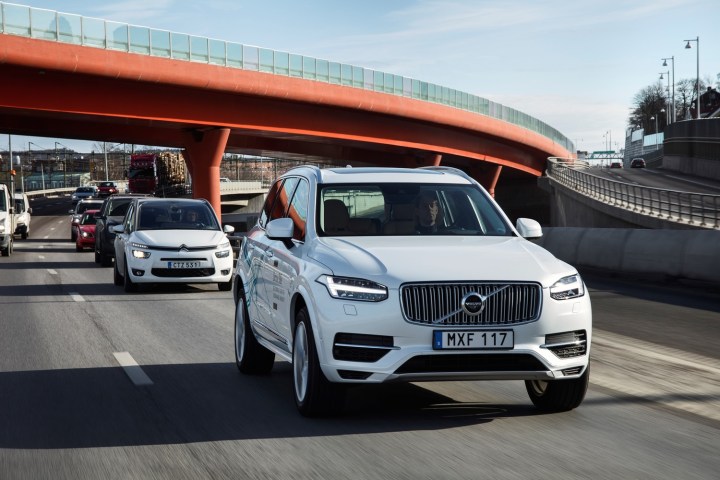
The issue of causality and blame in accidents is the primary concern for these insurance giants. With the number of crushes expected to drop by 80 percent come 2035 and insurance premiums to drop with them, Thatcham Research and Volvo Cars have organized a panel to discuss the impact.
Swiss Re and HERE Maps released a report this month that projects autonomous driving technology could pull $20 billion from insurance premiums by 2020, and far more in the following years. A good chunk of that will come out of non-life gross premiums, the biggest category of global premiums.
Read More: Volvo Disses Tesla’s Autopilot Technology
Volvo’s take on the matter is that insurance companies will be forced to completely restructure their enterprises or lose gobs of business to new, more nimble enterprises.
“The medium to long term impact on the insurance industry is likely to be significant. But let’s not forget the real reason for this — fewer accidents, fewer injuries, fewer fatalities. Autonomous driving cars are the single most important advance in automotive safety to be seen in recent years,” said Hakan Samuelsson, Volvo’s president and chief executive. Samuelsson will speak today at a conference in London called “A Future with Autonomous Driving Cars – Implications for the Insurance Industry.” If that title doesn’t scream excitement, I don’t know what does!
“Vehicle manufacturers are predicting that highly autonomous vehicles, capable of allowing the driver to drop ‘out of the loop’ for certain sections of their journey, will be available from around 2021,” added Peter Shaw, chief executive at Thatcham Research. “Without doubt, crash frequency will also dramatically reduce. We’ve already seen this with the adoption of Autonomous Emergency Braking (AEB) on many new cars. Additionally, if a crash unfortunately can’t be avoided, then the impact speed will also drop as a result of the system’s performance — reducing the severity of the crash.”
For Volvo’s part, it announced a series of tests using self-driving technology to begin in 2017. The “Drive Me” program will include 100 autonomous vehicles, each being overseen by real consumers, and will be staged on roads in the U.K., Sweden, and China.
Samuelsson is pushing for regulatory bodies to embrace autonomous technology as soon as possible, and in the U.K. at least, he has some support. “Driverless cars will see our journeys become faster, cleaner, and safer, said Sajid Javid, the U.K.’s secretary of state for business, innovation, and skills. “The U.K. is leading the way in developing the technology needed to make this a reality thanks to our world-class research base and these types of trials will become increasingly common.”
The good news, it would appear, is that insurance rates will drop significantly for early adopters of self-driving technology, and perhaps even to those merely on the road with these tech-laden vehicles. There’s still the question of ultimate blame, especially in the case of an accident involving a self-driving car and a human-operated one, but we can expect new legislation on that topic to emerge shortly.
Editors' Recommendations
- Your car insurance company knows more about you than you think
- Beleaguered robotaxi startup Cruise lays off quarter of workforce
- Cruise’s robotaxi service suspended by California regulator
- Waymo expands robotaxi service area in San Francisco
- Cruise autonomous vehicle drives over woman just after she was hit by another car

